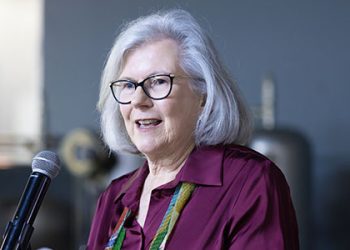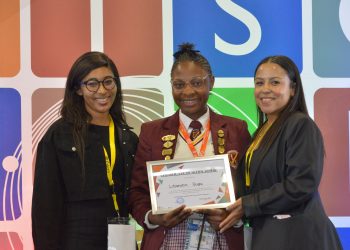The newly elected council of the South African Council for Natural Scientific Professions Council (SACNASP) should ensure they serve and protect the public and the environment, said the minister of higher education, science and innovation, Dr Blade Nzimande.
He was speaking on the occasion of the inauguration of the SACNASP’s council under the leadership of Professor Khathutshelo Agree Nephawe and his deputy, Professor Vanessa Steenkamp.

Protecting the environment and the public
The 30-member council will serve four-year term from the 1st September 2021 to 31 August 2025 in accordance with the natural scientific professions act. Over and above protecting the public and the environment, the SACNASP will also help in issues related to the rendering of natural scientific services by persons practising natural scientific professions.
Said minister Nzimande: “The SACNASP should thus ensure the upholding and maintenance of professional and ethical standards within the natural scientific professions, and advise me as the minister on any matters pertaining to the practice of natural science.”
Maximising stakeholder value
He said council members have fiduciary responsibilities including the implementation of government and wider societal priorities. “It is also tasked with certain responsibilities to maximise stakeholder value. These include determining the organisation’s strategic objectives and policies monitoring progress towards achieving the objectives and policies, and accounting for the organisation’s activities to relevant stakeholders,” said Dr Nzimande.
Developing the charter
He said he expects the council to develop the charter to outline its responsibilities, which include:
- the management of meetings of the council
- establishment of the council committees
- handling of conflict of interest and
- how the council will be evaluated.
Minister Nzimande also called on the members to familiarise themselves with the King IV report guidelines which outlines the council’s responsibilities. They range from promoting ethical culture; ensuring that internal audit is risk-based; viewing sustainability as a business opportunity to ensuring that internal and external disputes are resolved.

Praise the SACNASP
He praised the SACNASP for the manner in which it dealt with transformation regarding registered natural scientists which currently stands at 12 916. “Although male registered natural scientists still exceed their female counterparts with the ratio at 57% to 43%, the trend in newly registered scientists is that more females than males are registering with the ratio of females to males’ registrations being 53% to 47%. I encourage you to continue to implement your targets of attaining 55% new female registration,” said minister Nzimande.
More importantly, Dr Nzimande welcomed the SACNASP enrolment programme of students from higher educational institutions, saying this will help develop a pipeline of professional scientists and assist students in developing networks in the workplace. “Growing and developing the SACNASP pipeline is critical. I am delighted to notice that SACNASP’s positive, better than expected registration numbers which is attributable to its commitment and regulatory mandate,” said the minister.
Draft report
He said he is looking forward to the contents of the draft report on the study titled “Tracking of Employed, Unemployed and Underemployed Natural Science Graduates”, which is being compiled in collaboration with the Human Sciences Research Council.
The department of science and innovation (DSI) will work closely with SACNASP to identify measures that will improve the employability of natural scientists by helping them improve their soft skills that are critical in improving their chances of finding employment.
Mentoring phase programme
Minister Nzimande also expressed gratitude the SACSNASP for the significant progress it made towards implementing the pilot candidate mentoring phase programme. “What is pleasing is the fact that 75% of the mentees are female,” said the minister. He also commended the SACSNASP for its continuing professional development (CPD) programme on the natural science profession and its role on science engagements.
Dr Nzimande congratulated the SACNASP for fostering relations with the departments of co-operative governance and traditional affairs and the DSI on the district development model. He said the SACNASP must also explore ways on how it can also carve a niche in the skills development enterprise, using its CPD system, while working with the sector education and training authorities.







